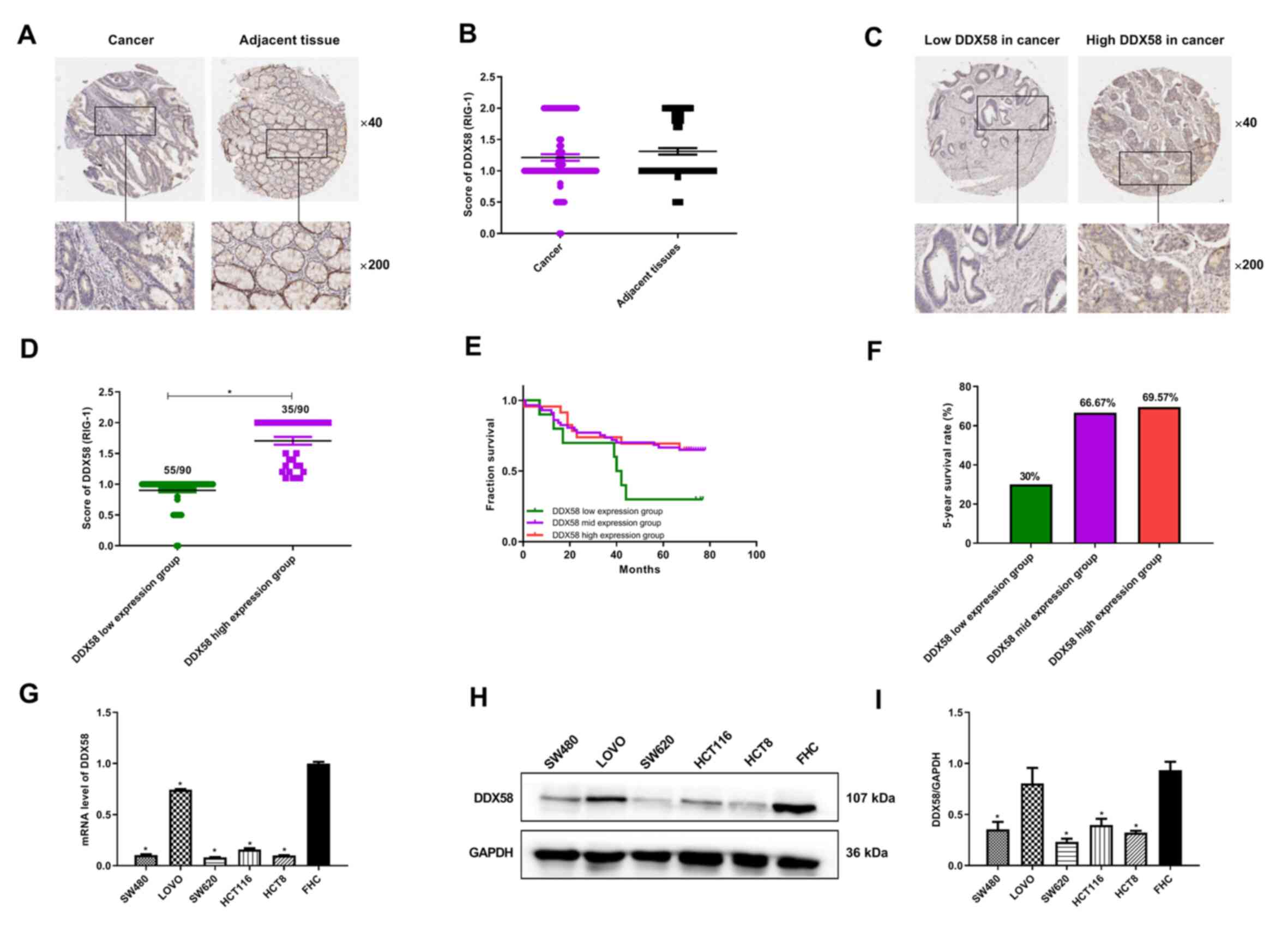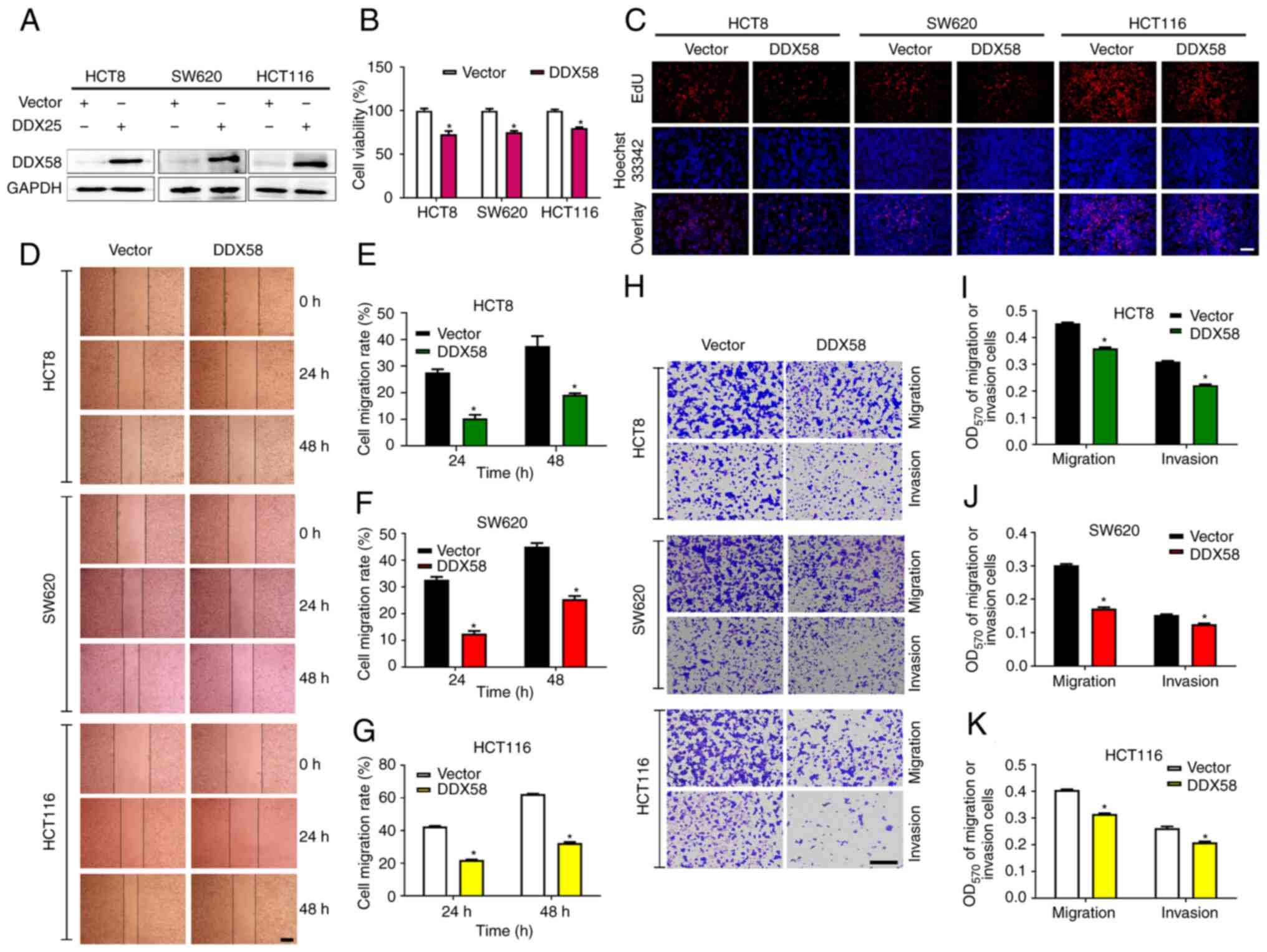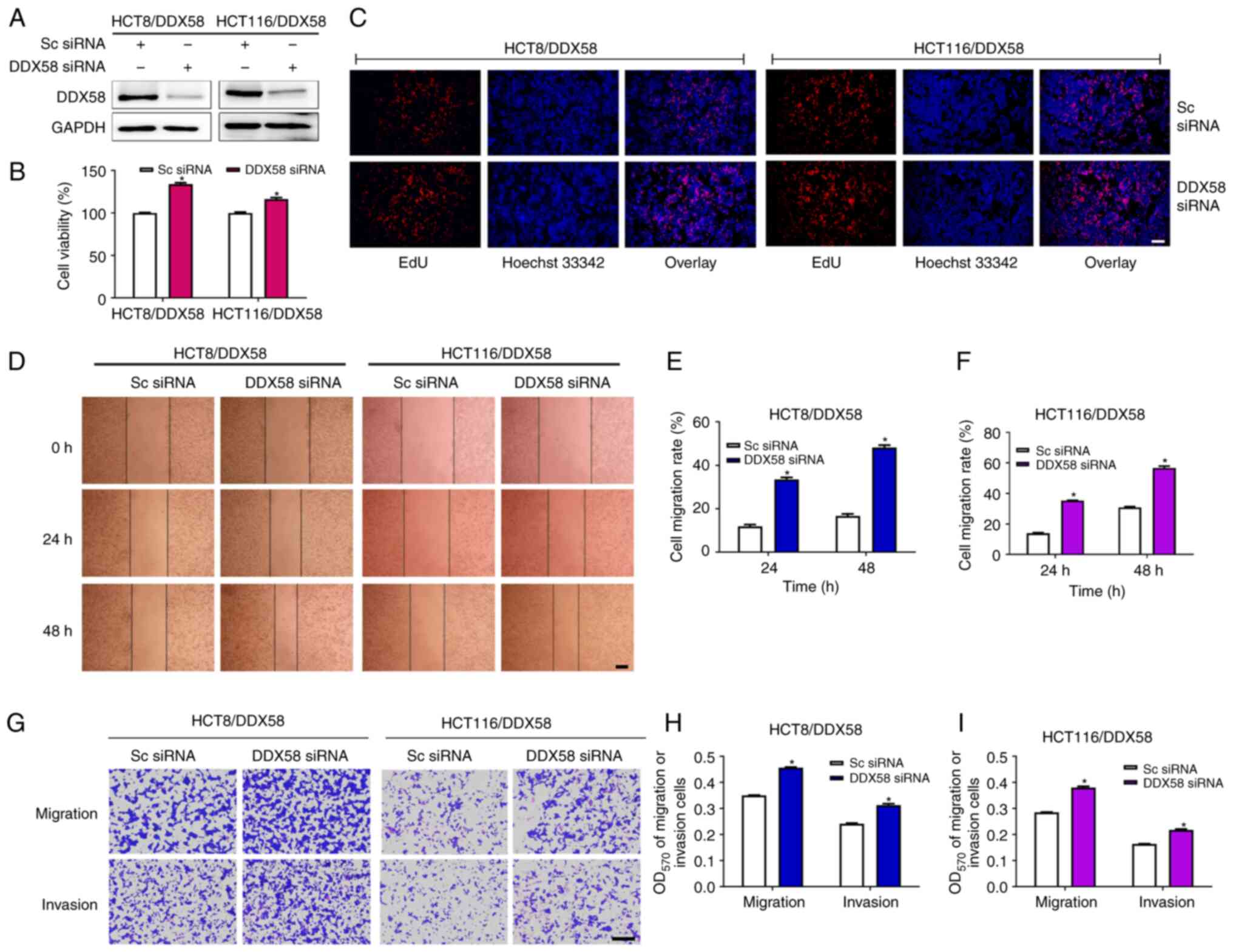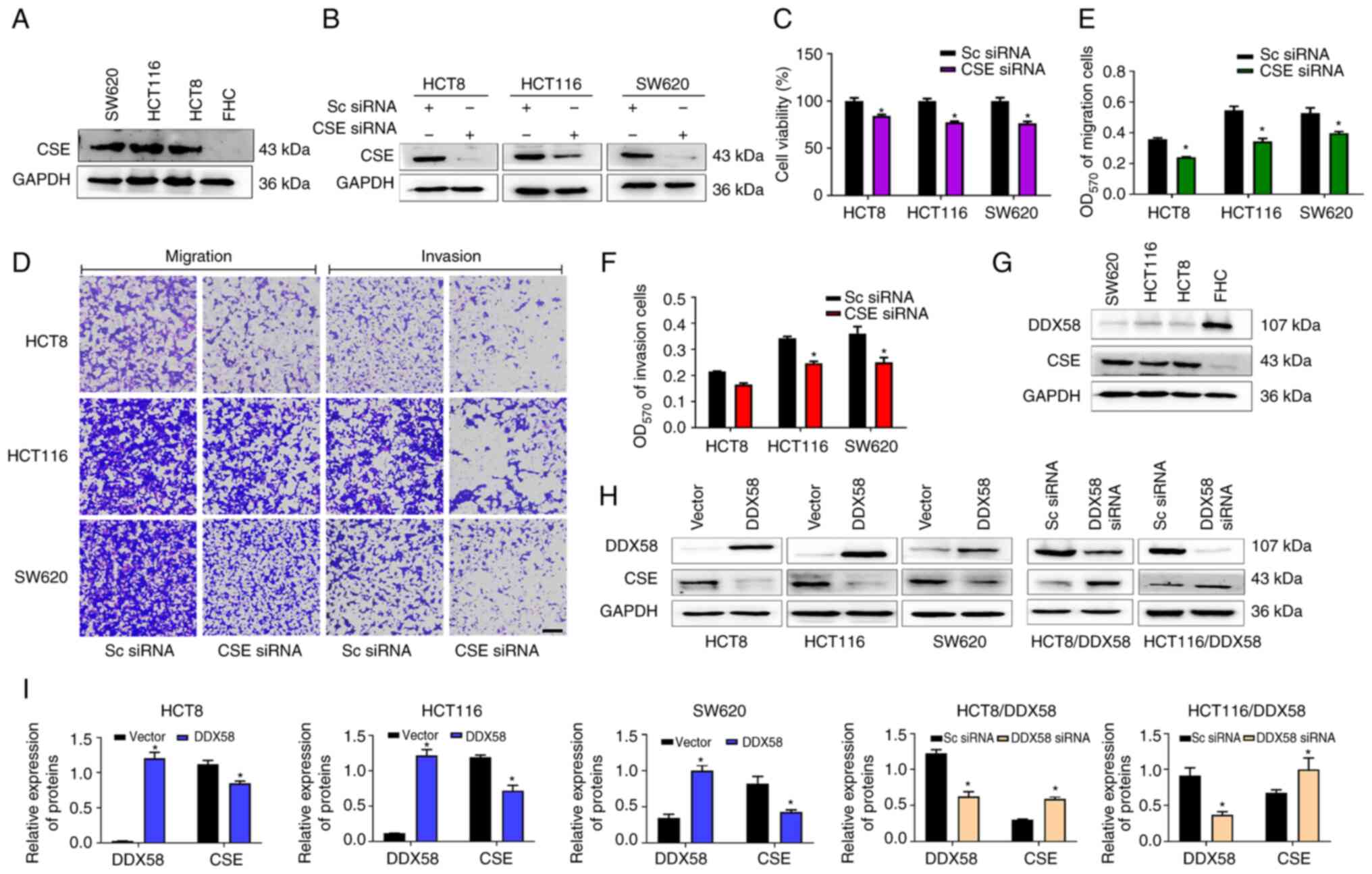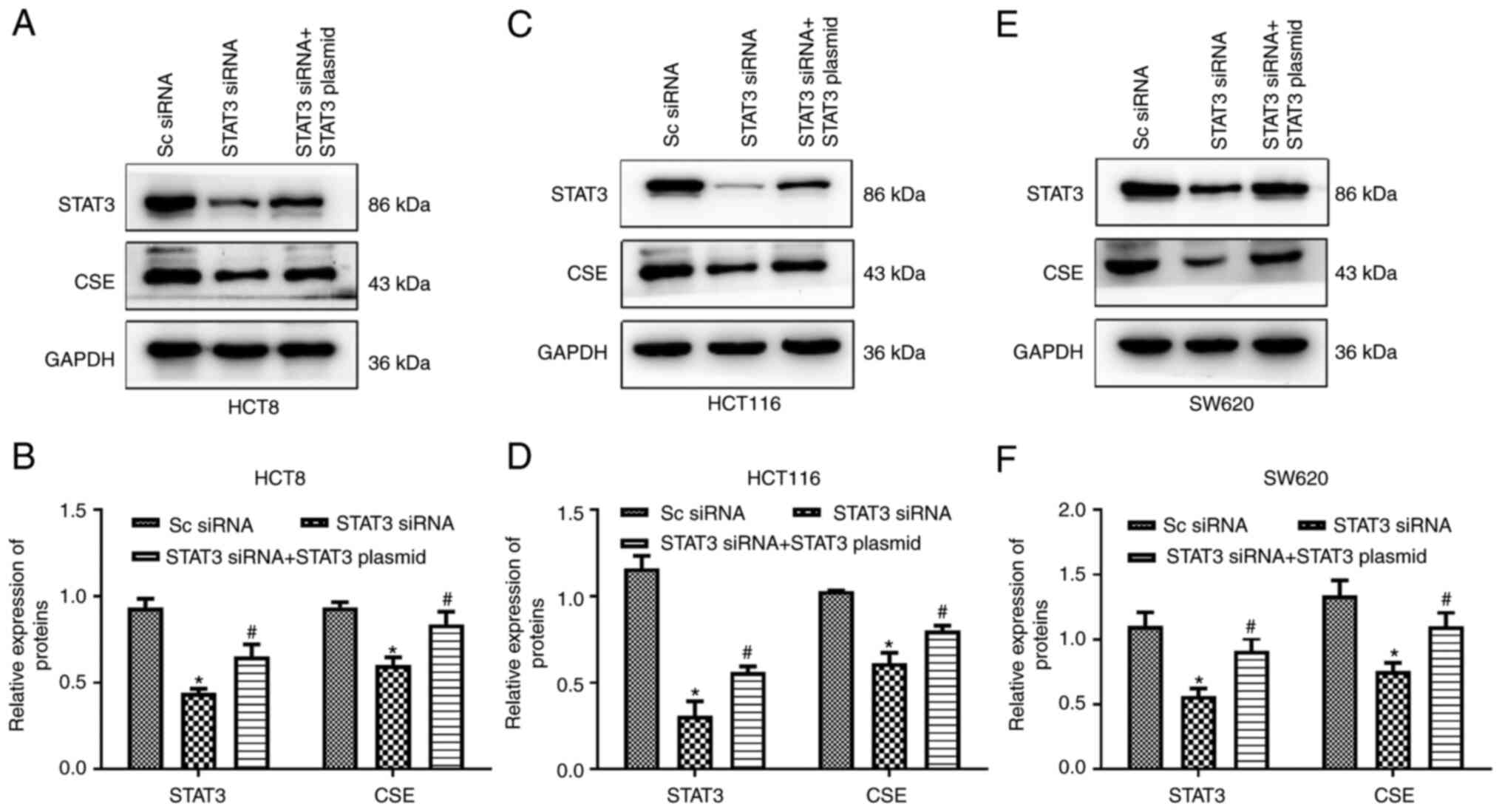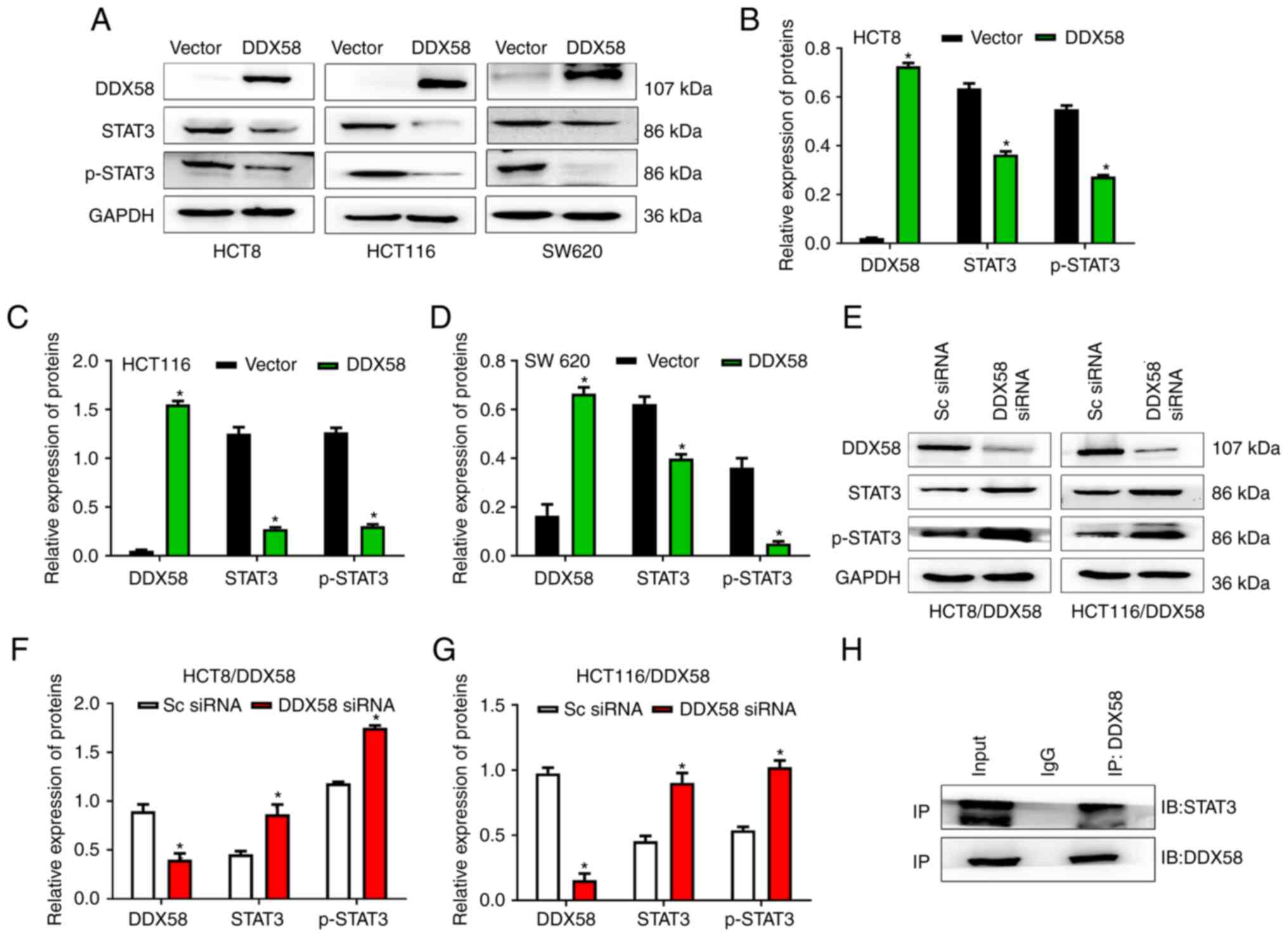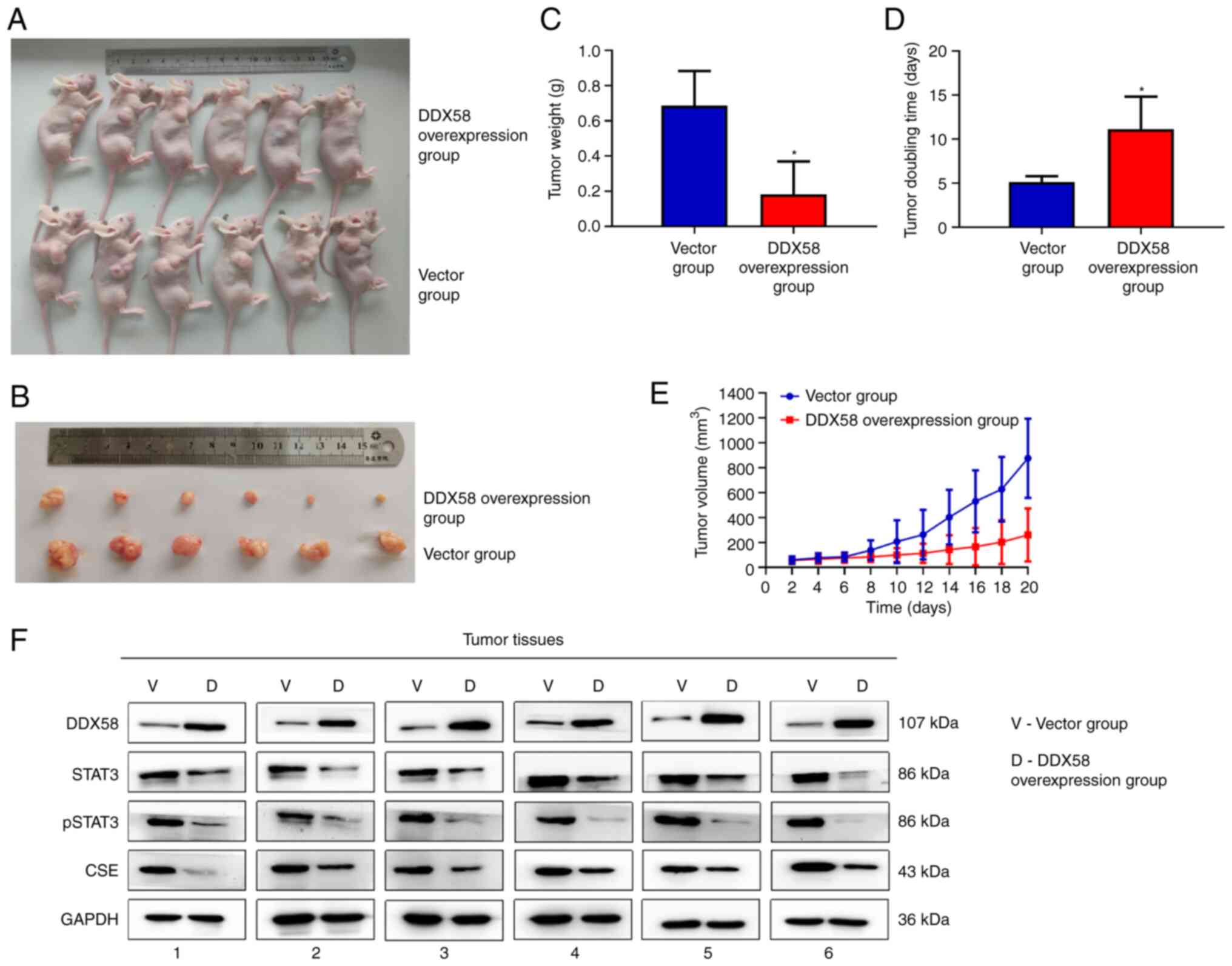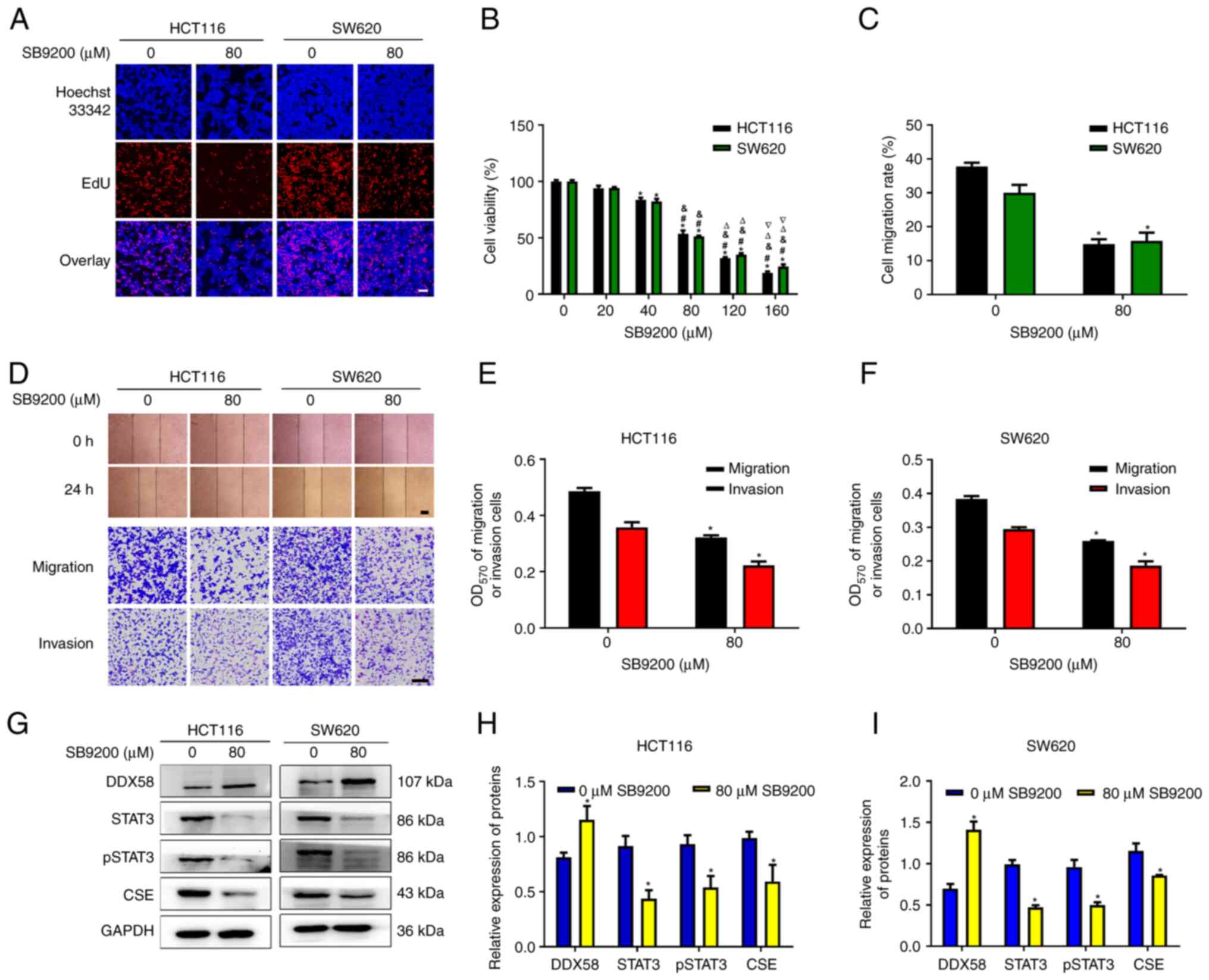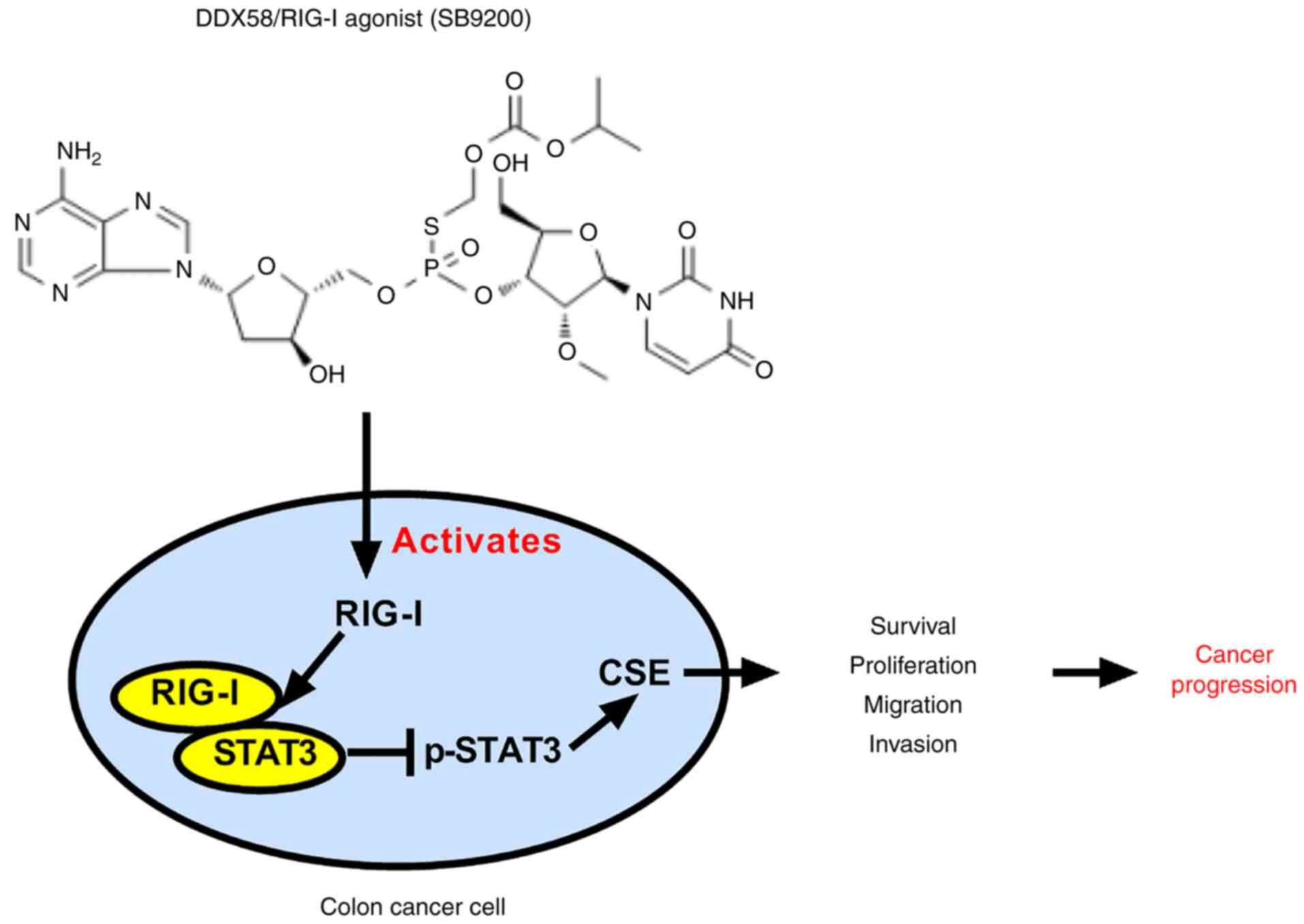|
1
|
Kell AM and Gale M Jr: RIG-I in RNA virus
recognition. Virology. 479-480:110–121. 2015. View Article : Google Scholar : PubMed/NCBI
|
|
2
|
Hur S: Double-stranded RNA sensors and
modulators in innate immunity. Annu Rev Immunol. 37:349–375. 2019.
View Article : Google Scholar : PubMed/NCBI
|
|
3
|
Streicher F and Jouvenet N: Stimulation of
innate immunity by host and viral RNAs. Trends Immunol.
40:1134–1148. 2019. View Article : Google Scholar
|
|
4
|
Prasov L, Bohnsack BL, El Husny AS, Tsoi
LC, Guan B, Kahlenberg JM, Almeida E, Wang H, Cowen EW, De Jesus
AA, et al: DDX58(RIG-I)-related disease is associated with
tissuespecific interferon pathway activation. J Med Genet.
59:294–304. 2022. View Article : Google Scholar
|
|
5
|
Wu S, Lin J, Fu Y and Ou Q: RIG-I enhances
interferon-alpha response by promoting antiviral protein expression
in patients with chronic hepatitis B. Antivir Ther. 23:575–583.
2018. View
Article : Google Scholar
|
|
6
|
Loo YM and Gale M Jr: Immune signaling by
RIG-Ilike receptors. Immunity. 34:680–692. 2011. View Article : Google Scholar : PubMed/NCBI
|
|
7
|
Besch R, Poeck H, Hohenauer T, Senft D,
Häcker G, Berking C, Hornung V, Endres S, Ruzicka T, Rothenfusser S
and Hartmann G: Proapoptotic signaling induced by RIG-I and MDA-5
results in type I interferon-independent apoptosis in human
melanoma cells. J Clin Invest. 119:2399–2411. 2009.PubMed/NCBI
|
|
8
|
Duewell P, Steger A, Lohr H, Bourhis H,
Hoelz H, Kirchleitner SV, Stieg MR, Grassmann S, Kobold S, Siveke
JT, et al: RIG-I-like helicases induce immunogenic cell death of
pancreatic cancer cells and sensitize tumors toward killing by
CD8(+). T cells Cell Death Differ. 21:1825–1837. 2014. View Article : Google Scholar
|
|
9
|
Hou J, Zhou Y, Zheng Y, Fan J, Zhou W, Ng
IO, Sun H, Qin L, Qiu S, Lee JM, et al: Hepatic RIG-I predicts
survival and interferon-alpha therapeutic response in
hepatocellular carcinoma. Cancer Cell. 25:49–63. 2014. View Article : Google Scholar
|
|
10
|
Xu XX, Wan H, Nie L, Shao T, Xiang LX and
Shao JZ: RIG-I: A multifunctional protein beyond a pattern
recognition receptor. Protein Cell. 9:246–253. 2018. View Article : Google Scholar :
|
|
11
|
Elion DL, Jacobson ME, Hicks DJ, Rahman B,
Sanchez V, Gonzales-Ericsson PI, Fedorova O, Pyle AM, Wilson JT and
Cook RS: Therapeutically active RIG-I agonist induces immunogenic
tumor cell killing in breast cancers. Cancer Res. 78:6183–6195.
2018. View Article : Google Scholar : PubMed/NCBI
|
|
12
|
Jacobson ME, Wang-Bishop L, Becker KW and
Wilson JT: Delivery of 5'-triphosphate RNA with endosomolytic
nanoparticles potently activates RIG-I to improve cancer
immunotherapy. Biomater Sci. 7:547–559. 2019. View Article : Google Scholar
|
|
13
|
Ellermeier J, Wei J, Duewell P, Hoves S,
Stieg MR, Adunka T, Noerenberg D, Anders HJ, Mayr D, Poeck H, et
al: Therapeutic efficacy of bifunctional siRNA combining TGF-β1
silencing with RIG-I activation in pancreatic cancer. Cancer Res.
73:1709–1720. 2013. View Article : Google Scholar : PubMed/NCBI
|
|
14
|
Brägelmann J, Lorenz C, Borchmann S,
Nishii K, Wegner J, Meder L, Ostendorp J, Ast DF, Heimsoeth A,
Nakasuka T, et al: MAPK-pathway inhibition mediates inflammatory
reprogramming and sensitizes tumors to targeted activation of
innate immunity sensor RIG-I. Nat Commun. 12:55052021. View Article : Google Scholar : PubMed/NCBI
|
|
15
|
Yang S, Yang C, Yu F, Ding W, Hu Y, Cheng
F, Zhang F, Guan B, Wang X, Lu L and Rao J: Endoplasmic reticulum
resident oxidase ERO1-Lalpha promotes hepatocellular carcinoma
metastasis and angiogenesis through the S1PR1/STAT3/VEGF-A pathway.
Cell Death Dis. 9:11052018. View Article : Google Scholar : PubMed/NCBI
|
|
16
|
Wang L, Shi H, Liu Y, Zhang W, Duan X, Li
M, Shi X and Wang T: Cystathionine-γ-lyase promotes the metastasis
of breast cancer via the VEGF signaling pathway. Int J Oncol.
55:473–487. 2019.PubMed/NCBI
|
|
17
|
Wang L, Shi H, Zhang XY, Zhang XL, Liu Y,
Kang W, Shi X and Wang T: I157172, a novel inhibitor of
cystathionine γ-lyase, inhibits growth and migration of breast
cancer cells via SIRT1-mediated deacetylation of STAT3. Oncol Rep.
41:427–436. 2019.
|
|
18
|
Nitti M, Piras S, Marinari UM, Moretta L,
Pronzato MA and Furfaro AL: HO-1 induction in cancer progression: A
matter of cell adaptation. Antioxidants (Basel). 6:292017.
View Article : Google Scholar
|
|
19
|
Livak KJ and Schmittgen TD: Analysis of
relative gene expression data using real-time quantitative PCR and
the 2 (-Delta Delta C(T)). method Methods. 25:402–408. 2001.
View Article : Google Scholar
|
|
20
|
Heidegger S, Wintges A, Stritzke F, Bek S,
Steiger K, Koenig PA, Göttert S, Engleitner T, Öllinger R, Nedelko
T, et al: RIG-I activation is critical for responsiveness to
checkpoint blockade. Sci Immunol. 4:eaau89432019. View Article : Google Scholar : PubMed/NCBI
|
|
21
|
Fan K, Li N, Qi J, Yin P, Zhao C, Wang L,
Li Z and Zha X: Wnt/β-catenin signaling induces the transcription
of cystathionine-gamma-lyase, a stimulator of tumor in colon
cancer. Cell Signal. 26:2801–2808. 2014. View Article : Google Scholar
|
|
22
|
Oláh G, Módis K, Törö G, Hellmich MR,
Szczesny B and Szabo C: Role of endogenous and exogenous nitric
oxide, carbon monoxide and hydrogen sulfide in HCT116 colon cancer
cell proliferation. Biochem Pharmacol. 149:186–204. 2018.
View Article : Google Scholar :
|
|
23
|
Cao X, Ding L, Xie ZZ, Yang Y, Whiteman M,
Moore PK and Bian JS: A review of hydrogen sulfide synthesis,
metabolism, and measurement: Is modulation of hydrogen sulfide a
novel therapeutic for cancer? Antioxid Redox Signal. 31:1–38. 2019.
View Article : Google Scholar :
|
|
24
|
You J, Shi X, Liang H, Ye J, Wang L, Han
H, Fang H, Kang W and Wang T: Cystathionine--lyase promotes process
of breast cancer in association with STAT3 signaling pathway.
Oncotarget. 8:65677–65686. 2017. View Article : Google Scholar : PubMed/NCBI
|
|
25
|
Siegel R, Desantis C and Jemal A:
Colorectal cancer statistics, 2014. Cancer J Clin. 64:104–117.
2014. View Article : Google Scholar
|
|
26
|
Lichtenstern CR, Ngu RK, Shalapour S and
Karin M: Immunotherapy, inflammation and colorectal cancer. Cells.
9:6182020. View Article : Google Scholar :
|
|
27
|
Vatandoust S, Price TJ and Karapetis CS:
Colorectal cancer: Metastases to a single organ. World J
Gastroenterol. 21:11767–11776. 2015. View Article : Google Scholar : PubMed/NCBI
|
|
28
|
Reddy TP, Khan U, Burns EA and Abdelrahim
M: Chemotherapy rechallenge in metastatic colon cancer: A case
report and literature review. World J Clin Oncol. 11:959–967. 2020.
View Article : Google Scholar : PubMed/NCBI
|
|
29
|
Elion DL and Cook RS: Harnessing RIG-I and
intrinsic immunity in the tumor microenvironment for therapeutic
cancer treatment. Oncotarget. 9:29007–29017. 2018. View Article : Google Scholar : PubMed/NCBI
|
|
30
|
Jiang X, Muthusamy V, Fedorova O, Kong Y,
Kim DJ, Bosenberg M, Pyle AM and Iwasaki A: Intratumoral delivery
of RIG-I agonist SLR14 induces robust antitumor responses. J Exp
Med. 216:2854–2868. 2019. View Article : Google Scholar : PubMed/NCBI
|
|
31
|
Wei N, Li J, Fang C, Chang J, Xirou V,
Syrigos NK, Marks BJ, Chu E and Schmitz JC: Targeting colon cancer
with the novel STAT3 inhibitor bruceantinol. Oncogene.
38:1676–1687. 2019. View Article : Google Scholar
|
|
32
|
Heichler C, Scheibe K, Schmied A, Geppert
CI, Schmid B, Wirtz S, Thoma OM, Kramer V, Waldner MJ, Büttner C,
et al: STAT3 activation through IL-6/IL-11 in cancer-associated
fibroblasts promotes colorectal tumour development and correlates
with poor prognosis. Gut. 69:1269–1282. 2020. View Article : Google Scholar
|















